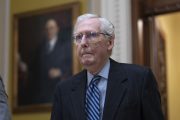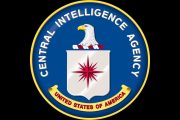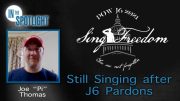
The change in Bank of America’s “Environmental and Social Risk Policy,” updated in December, appeared to be good news for the firearms industry. Instead of refusing to finance any company involved in the manufacture, sale, or distribution of so-called assault weapons, BofA said it would subject requests for financing by members of the industry to “enhanced due diligence” by a “Senior-level Risk Committee.”
This leaves in place the policy iterated by the bank in 2019, describing its financing of certain gun makers as being “contrary to our values, operating principles, and Code of Conduct.” Its anti-gun industry position was reiterated in 2022, when the bank stated that it “will not currently finance the manufacture of military-style firearms for non-law enforcement, non-military use.”
Supporters of the industry were quick to celebrate the change, with some calling it “reversing course” and an “about-face” move by the big bank.
The battle over financing of the gun industry is not new. Operation Choke Point was a Department of Justice move in 2013 against the industry under then-president Obama that cut off companies’ access to banking services, including loans, because they were involved in an industry engaged in activities opposed by Obama’s Marxist agenda. Critics noted that the move was a “thinly veiled ideological attack on industries the Obama administration doesn’t like, such as gun sellers.”
In August 2017, in one of its first moves, the Trump administration shut down the operation. At that time, Lawrence Keane, senior vice president and general counsel of the National Shooting Sports Foundation (NSSF), said: “We’re very pleased to see the end of the program. It was very nefarious and it took a lot of work to shine a light on it and get it stopped…. I have no doubt in my mind that many of our members, particularly retailers, but also manufacturers and importers, were victims of Operation Choke Point.”
Ryan Cleckner, a firearms attorney, was a bit skeptical, however, saying, “I’m glad the federal government is not targeting and burdening an entire industry anymore, but there is no guarantee all banks are going to start doing business with firearms dealers.”
The mass shooting at Marjory Stoneman Douglas High School in Parkland, Florida, in February 2018 relit the fires of the anti-gun movement, and the major banks quickly implemented policies designed to strangle the gun industry by choking off its financing.
The pressure involved using fear and misinformation to persuade the banks to shut down their financing. Avery Gardiner, then co-president of the Brady Campaign to Prevent Gun Violence, revealed just how far the group would go in dissuading banks from financing the gun industry, asking them rhetorically: “Why would anyone want to help finance assault weapons that are regularly used in mass shootings?”
As readers know, semiautomatic rifles are not “assault weapons,” and they are very rarely used in mass shootings. But in the war against guns, facts don’t matter.
Here is the language Bank of America now uses in its updated policy manual to continue its discrimination against the gun industry:
Standard due diligence is conducted when … risks are well understood or expected to be relatively low for the … industry….
A … transaction my require enhanced due diligence … if the … industry … is deemed sufficiently sensitive….
As such, any client relationship … related to (financing the manufacture of military-style firearms for non-law enforcement, non-military use) must go through an enhanced due diligence process and be escalated to … the “Senior-level Risk Committee” for decisioning….
Skeptics abound. Said Keane:
We are encouraged by Bank of America’s announcement that it will no longer pursue a “woke” policy of discriminating against members of our industry merely because they make and lawfully sell products Americans desire to purchase.
We hope they are sincere and this is not a publicity stunt.
Dru Stevenson, a professor who studies firearms regulation at the South Texas College of Law, was more direct. The “change” in policy by BofA is “a workaround by the bank rather than a true change in their perspective. It seems like a brilliant move by Bank of America to move itself out of the line of fire in the culture wars over guns.”
In other words, skeptics believe the move is designed to placate state officials in Texas and Florida, who have sanctioned BofA and other big banks like JPMorgan and Citibank over their similar anti-gun policies. When Texas AG Ken Paxton learned about Citibank’s gun industry discrimination policies, he forced the bank to withdraw its bid to underwrite a $3.4 billion bond deal for the state.



